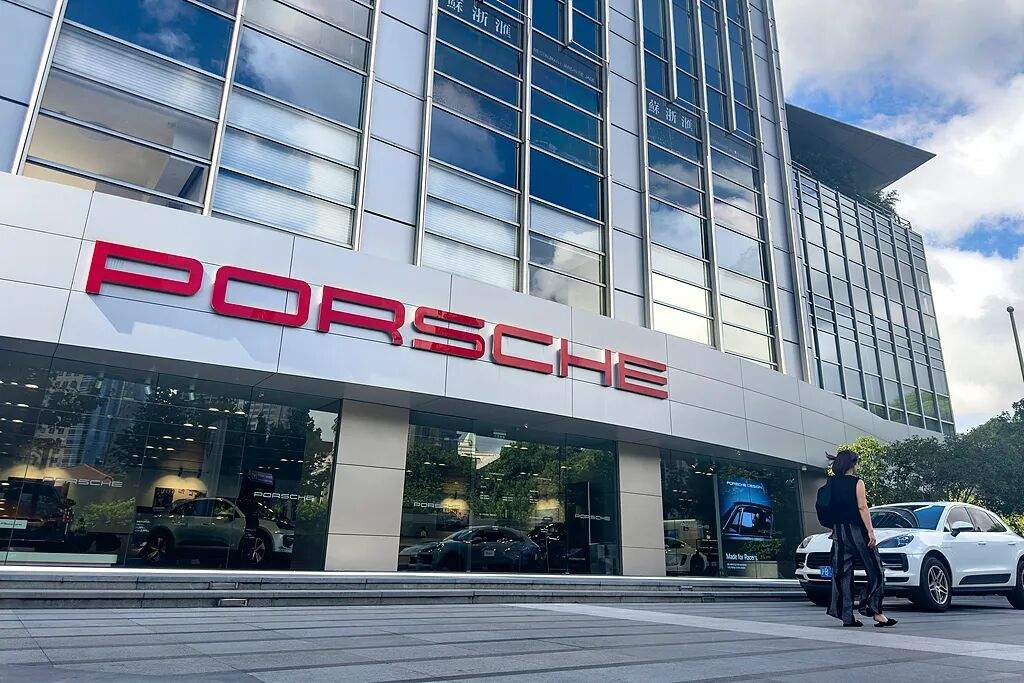
When the delivery data for the first half of 2025 is released, Porsche's sales in China of 21302 units, a year-on-year drop of 28%, cast a shadow over the development of this century old luxury car brand. This is not a short-term fluctuation, but a continuation of four consecutive years of decline - the decline expanded from 2.5% in 2022 to 15% in 2023, further intensifying to 28% in 2024, global sales decreased by 3% synchronously, and net profit plummeted by 30.3% to 3.6 billion euros.
The slow pace of electrification transformation is the core crux of the decline in sales. As global car companies accelerate their transition to electrification, Porsche's strategy has always wavered between conservatism and radicalism, ultimately missing the market window. Despite the launch of the Taycan pure electric model and Macan electric version, the 2024 electrified models (hybrid) only accounted for 38.5% of the delivery volume, far below industry expectations. What is even more alarming is that its original target of 80% pure electric vehicle proportion by 2030 has quietly been adjusted to "flexible adjustment", and even explicitly stated that "customers can still choose internal combustion engine models in every segmented market by 2030". This hesitation is in sharp contrast to the aggressive layout of Tesla and Chinese new forces.
The iteration of consumer concepts has further eroded Porsche's brand reputation. In the past, Porsche relied on "ultra luxury status symbols" to attract consumers, but now this group is shifting towards local brands that combine technology and cost-effectiveness. In the price range below 400000 yuan, the intelligent cockpit and autonomous driving configuration of Porsche Macan are even inferior to domestic new cars in the same price range; In the high-end market, its main models Macan and Panamera lack innovation at the end of the product cycle, making it difficult to compete with new product impacts from brands such as BYD and Ideal. The current situation of "brand premium being disconnected from product value" has made the "Porsche" logo no longer an inevitable choice for consumers.
The rigidity and mistakes of internal strategy have exacerbated the spread of market downturn. Faced with market contraction, Porsche adhered to the strategy of "value first over sales" and refused to participate in price competition, but fell into a vicious cycle of high inventory and channel turbulence. In 2024, its average inventory coefficient in China reached 4.2, far exceeding the industry warning line of 1.5. Dealers were forced to liquidate their inventory at a loss, ultimately leading to collective protests from more than 40 dealers nationwide. To make matters worse, the brand plans to reduce its Chinese distributor network from 140 to 100, further exacerbating channel chaos in the short term and leading to a sustained weakening of terminal sales capabilities.
The loss of control on the cost side exacerbates the profitability situation. The fluctuation of battery raw material prices, European carbon tariff policies, and chip supply chain bottlenecks have jointly pushed up production costs. Taking Taycan as an example, its battery pack cost accounts for nearly 40%, and the 20% rebound in lithium carbonate prices in Q4 2024 directly erodes profit margins. At the same time, the additional R&D investment of 800 million euros has not been effectively transformed into technological advantages, and the production progress of PPE electric platforms lags behind. The contradiction between the increase in R&D cost rate and the low efficiency of technology transformation has led to a decrease in Porsche's bicycle profit margin from 18% to 14.1%.
The swaying of organizational structure and strategic focus exposes the deep confusion of transformation. In response to the crisis, Porsche has launched an aggressive layoff plan - cutting 3900 jobs by 2029, closing some German factories, and attempting to transition to "light asset operations". However, this "surgical style" cost reduction is inherently contradictory to the strategy of increasing research and development investment, reflecting the dilemma of brands between short-term survival and long-term development.
Porsche's predicament is essentially a microcosm of traditional luxury brands during the period of industrial transformation. The impact it has encountered proves that in the process of the automotive industry moving from the "mechanical age" to the "intelligent electric age", pure brand accumulation and mechanical performance are no longer sufficient to support competitiveness. Technological experience, localized innovation, and flexible strategy have become new survival rules. In the face of the crisis, although Porsche has proposed remedial measures such as advancing the release of the pure electric Cayenne to the end of 2025 and collaborating with Horizon Robotics on intelligent driving technology, it is still unknown whether they will be effective.
From an industry perspective, Porsche's sharp decline in sales is a mirror that reflects the common challenge of all traditional luxury brands: how to find a balance between adhering to the brand core and adapting to market changes? How to transform a century of accumulation into a competitive advantage in the era of intelligent electric vehicles? Porsche CEO Oliver Blume's statement that 'sales are not the ultimate goal, value takes precedence over sales' may be correct, but under the siege of Tesla and new forces in China, if the' brand value 'cannot be reconstructed into a diversified system of' technology+experience+culture ', it may be difficult to avoid the fate of sliding from a' profit benchmark 'to a' transformation case '. This sales crisis is not only a test for Porsche, but also a warning for the entire luxury car industry.

The South Korean political arena has once again been embroiled in a public controversy over a judicial investigation that has shaken the entire nation.
The South Korean political arena has once again been embroi…
On the morning of December 29th local time, the precious me…
According to the US media Barchart, recently, the fluctuati…
On December 29th, Mar-a-Lago in Florida, USA, witnessed a h…
SoftBank Group announced on Monday that it has agreed to ac…
Recently, the US State Department issued a visa ban, adding…